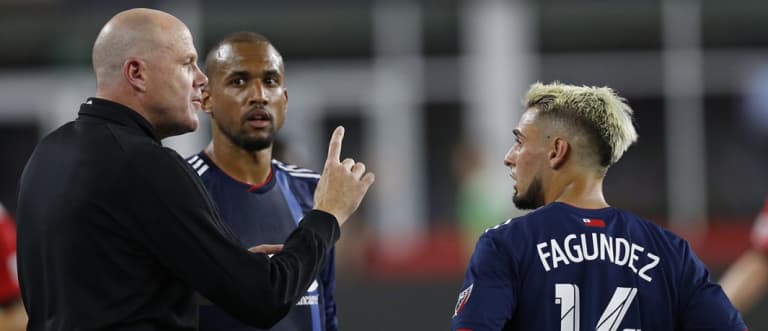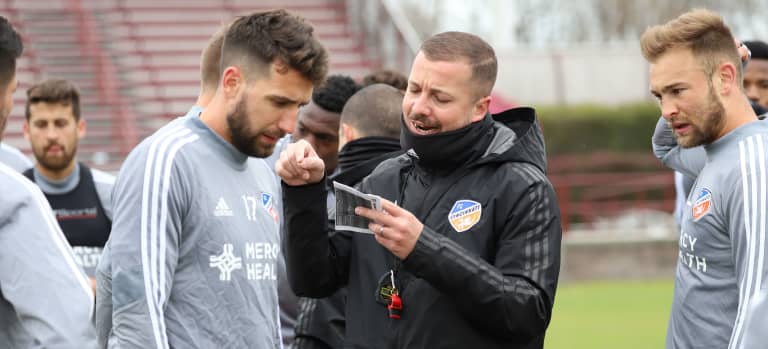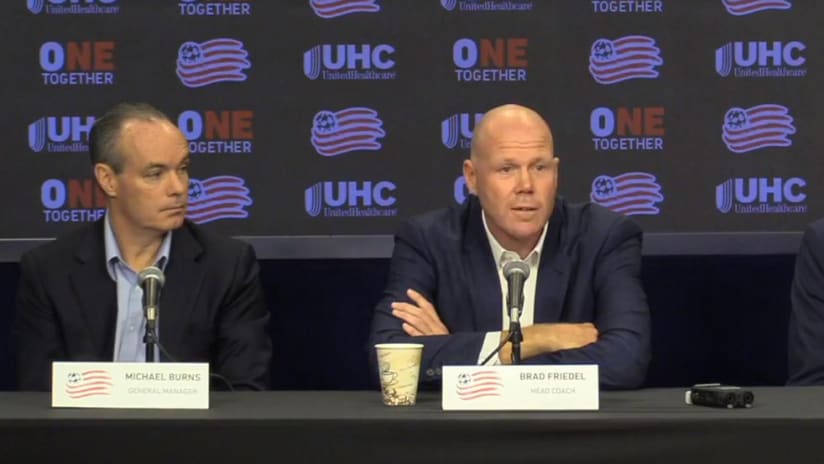Now that Brad Friedel has been fired, it’s easy to find the signposts of impending doom – columns about the persistent shortcomings of his New England Revolution, damning statistics from his 12W-21L-13D tenure, even unflattering soundbites from the man himself along the way.
With the Revs stuck at the bottom of the Eastern Conference standings at 2-8-2, on a four-game winless streak in which they’ve leaked an incredible 18 goals, obviously down at the heels as a group, it seems obvious. And it must be noted that dating all the way back to the time of Friedel’s hiring, there were some voices who panned the choice and questioned the process by which it was reached.
That hindsight perspective should not ignore the reasons why Friedel WAS compelling for the Revs, however. This is one of the greatest American soccer players of all time we're talking about, a three-time World Cup veteran and a titan among English Premier League goalkeepers with the records and longevity to prove it.
Friedel played until he was 44, then moved into television work – which he’d already been moonlighting in for years, and in front of huge audiences – and logged his coaching licenses along the way, then worked as an understudy to Tab Ramos and Omid Namazi as an assistant in the US youth national team system. A 2018 National Soccer Hall of Fame inductee, his life – no matter what happens from here on out – is already an inspiring story of courage and perseverance that’s taken him from the Cleveland suburbs to the summit of the world’s game.

Brad Friedel with Teal Bunbury and Diego Fagundez | USA Today Sports Images
He seemed to have all the tools needed to thrive as an MLS coach and, importantly, he had Burns’ trust as an old friend and teammate. And several ex-players with shorter resumes than his have been given opportunities in MLS over the years.
But for now, at least until he gets another coaching gig and refurbishes his reputation, we’re left to categorize Friedel among the sporting legends who found teaching the game at a high level to be a great deal harder then playing it. This is not bad company to be in! Think of Wayne Gretzky in hockey, Isiah Thomas in basketball or baseball great Ted Williams. And soccer’s most prominent recent example is someone who’s familiar to MLS audiences: the iconic Thierry Henry.
TH14 lit up Ligue 1, the Premiership, La Liga, two World Cups and myriad other big stages before bossing MLS defenses with the New York Red Bulls. Like Friedel, his personality, playing career and work on TV and as a youth and assistant coach all suggested that he’d do well on the sidelines. But his tenure at Monaco was, well... lamentable to say the least, and lasted just three months.
George Bernard Shaw once wrote that “He who can, does. He who cannot, teaches.” It’s a rather vicious saying, and not entirely accurate, but there’s a kernel of truth in there that psychologists acknowledge: The mental processes of performing at an elite standard are entirely different from, and sometimes even directly clash with, the processes of nurturing others to do so.
It’s not an impossible leap to make, but one that usually takes time, experience, formal study and a sincere devotion to coaching as an entirely new craft. In some countries, it’s approached with almost the same rigor as a doctorate, with years of classroom and field study and lengthy thesis work. In a rapidly-evolving MLS, doing all that on the job – as the likes of Ben Olsen, Jay Heaps, Pablo Mastroeni and Carl Robinson were once asked to do – looks extremely difficult. Perhaps even impossible.
The case of FC Cincinnati interim boss Yoann Damet is instructive here. The Frenchman is a mere 29 years of age, the youngest head coach of any sort in MLS history, and one of the few not to have played at a collegiate or professional level. Yet he’s risen rapidly in his profession and earned respect from colleagues and pupils alike, because by all accounts he’s quite good at it.

Yoann Damet | FC Cincinnati
Damet set his sights on a coaching career as a teenager, and while his age cohort was still playing the game, he was studying it, not only in his UEFA and Canadian A license courses but in a sport-centric curriculum at a French university and over many seasons as a youth coach. He represents a wider pattern found most strikingly in Germany, where a wave of young phenomenons like Thomas Tuchel, Julian Nagelsmann and Domenico Tedesco have recently carved out success beyond their years.
Here in MLS, things are changing in the technical area, too. The past two-plus seasons alone have seen big names like Tata Martino, Remi Garde, Matias Almeyda, Guillermo Barros Schelotto and Frank de Boer enter the league. For several years now I’ve heard from agents and other insiders that interest in MLS coaching work is higher than ever overseas, so I expect this trend to continue. Front offices are figuring out that superstar managers can get results here, and aren’t subject to salary caps or roster-spot limits.
So where will the Revs go from here? Even with the first team’s current slump, they’ll have plenty of options for their next hire. Their evaluation process, and what it says about the future they want to create, will reveal almost as much as who they choose.













